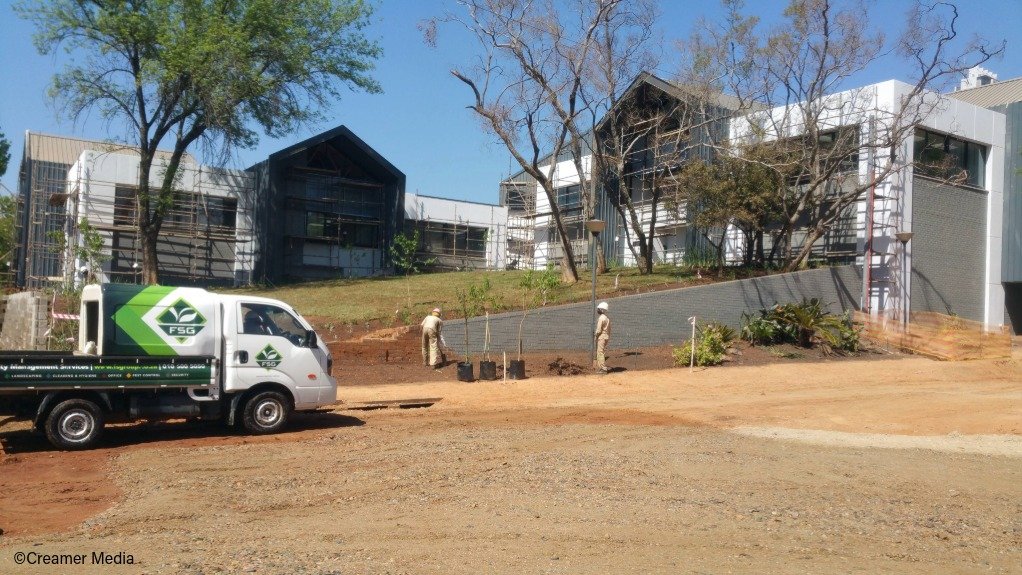JSE-listed private education provider ADvTECH will open a new Emeris university on Grayston drive, in Sandown, Sandton, and aims to start with 6 000 students when it opens next year, ADvTECH Group CEO Geoff Whyte revealed on September 18.
Speaking at the campus, which is under construction, he said the new brand Emeris consolidated all the resources and expertise of private higher education institution The Independent Institute of Education's (IIE's) campuses and schools, including Varsity College, MSA, Vega and the School of Hospitality and Service Management.
“We have invested R420-million in the new brand and in this state-of-the-art campus that will provide education for up to 9 000 students in time. However, we are not only investing in a new campus. We are investing to elevate the student experience and their academic outcomes across all our sites in South Africa.”
This was part of the group's strategy to reduce its portfolio of tertiary academic brands to two from four, which simplified the structures and sharpened the focus on delivering better education experiences to students, he said.
South Africa's population continued to grow, leading to greater demand for tertiary education and university places, but the numbers that the State tertiary institutions could accommodate had contracted over the past few years.
“This is creating a supply shortfall that we are trying to address through the private sector, and we have strong offerings and bespoke facilities, like this here, as well as the lecturers and systems to deliver not only academic outcomes, but employment outcomes for our students,” Whyte said.
The IIE was aiming to move from the traditional transmission form of tertiary education to a rich learning environment that was responsive to reality through training and developing its academics, ensuring responsive curriculum design and leveraging technology to improve learning outcomes, said IIE deputy dean of academic development Dr André Abrahams.
“Over the past few years, we have been working on establishing educational technologies in our ecosystem, and in our learning management system (LMS). The goal is for our education to remain flexible and the aim is to enhance our pedagogical activities.
“For example, AI tools will enhance the teaching space, facilitate deeper engagement with the educational materials and improve learning outcomes,” he said.
AI tools that were relevant were provided to the faculty to enable them to develop these skills; although the AI tools changed regularly and rapidly. Therefore, Emeris aimed to ensure graduates had the correct attitude to using AI when they left, said Emeris MD Louise Wiseman.
Emeris saw the value and potential in AI and acknowledged the challenges and anxiety, but also the excitement in how they could be taken advantage of by academics, said Abrahams.
Emeris is investing in AI education tools, but is always clear about what it is aiming to achieve when deploying them.
“We want to be able to generate high-quality educational materials and enable adaptive teaching to match unique learning needs of students and give each a personalised path to learning.
“We created courses for our lecturers to understand AI and we provide lecturers with the autonomy to explore and fail and learn how to use these tools effectively. Our lecturers have shifted from anxiety to excitement about the potential of learning technologies,” he said. ![]()






